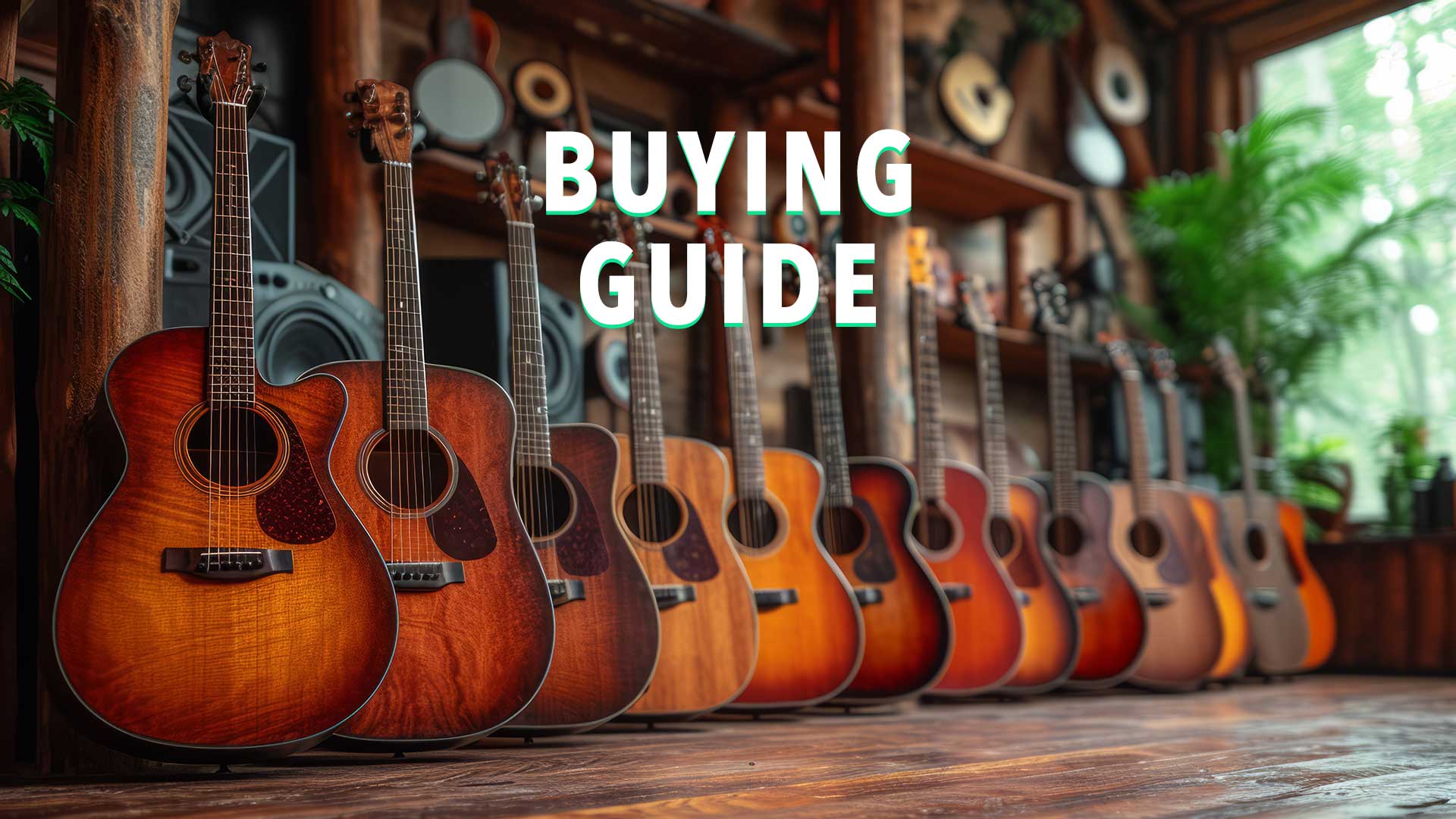

Buying a new acoustic guitar is overwhelming. There are so many to choose from!
Let me help you cut the overwhelm. There are 5 main factors to consider:
Many people are brand loyal, so when you ask for opinions on what to get, you’ll often hear people say something like, “Taylor is the only way to go”, or “Martin guitars are best”.
Being brand loyal isn’t necessarily a bad thing. If you find something you like, then stick with it!
People choose certain brands for many reasons, including build quality, sound production, labor practices, and the list goes on. Yes, certain brands like Taylor and Martin have good reputations because they have stood the test of time, and because they have been around, you’ve probably seen your favorite artists playing one.
But just because a guitar brand has staying power doesn't mean it should be the sole reason you get a guitar. You might find an unknown or up-and-coming brand that could surprise you.
Do the research, of course, but don’t let the brand be the end-all-be-all. You can get a good guitar that is not a famous brand.
The brand doesn’t necessarily mean good sound, either, because the wood, body type, and many other factors are considered when buying a guitar.
Ultimately, get what you like and what feels good to play. There will always be haters on whichever brand you choose, but if it’s a guitar that makes you want to play more and feels good to play, then go with it! No judgment here!
Recommended: Taylor Academy 10
The factor that most affects the sound of an acoustic guitar is the wood or material it is made of.
Rosewood and Mahogany are the two most famous wood types for acoustic guitars, although there are hundreds of options. Woods can be hardwoods or softwoods, and almost everything in between. Each kind of wood, such as koa, walnut, or maple, produces different sounds.
Some woods give a darker or warmer sound, while others produce a brighter sound.
Wood quality is something you don’t want to skimp out on when selecting your guitar. Cheap woods can have a tendency to not just be unappealing sound-wise but also may not last as long as more expensive and sought-after woods.
You want a guitar to sound good all the time and be worth your time and effort. The best way to find out is to hit up your favorite guitar store, try some different kinds, and see what you like. You can also listen to examples on YouTube.
Acoustic Guitars range from huge bodies called Jumbo to easy-to-carry guitars like the Parlor. But the most common types you’ll see are the Dreadnought, a full body guitar that’s great for playing chords and getting big sounds, and the Auditorium, a smaller and lighter body and is great for playing long sessions.
There’s also the Cutaway, which only means that the body is cut in some so your playing hand can reach higher notes. This allows you full access to the entire fretboard, while the others would be more of a struggle.
That all depends on your playing style and what genres of music you want to play.
If you’re looking for a more classic sound, and maybe you play country, gospel, or older music in general, then I would suggest getting a Dreadnought. It’s a full-body guitar made for chords and rhythms.
If you like to play newer contemporary music, or modern music in general, then I would suggest the Auditorium. It’s a lighter body style that really cuts, though, and allows for a lot of versatility in your playing.
The cutaway would be a great option if you like to play a little more than rhythm and add in lots of notes and extra high end.
If you’re looking for a guitar to just play in small places or at your house, then you probably don’t need to worry about electronics. But if you’re looking to play on a stage or in a band, then electronics are an important consideration.
Most acoustic guitars today come with built-in pick-ups. Some are good, but most are "meh." That's why I recommend upgrading whatever guitar you get to the LR Baggs Anthem pick-up. You can even install the LR Baggs in an acoustic that doesn't have electronics.
All you need to do is purchase the LR Baggs and take your guitar to a local luthier to get it installed. It'll be worth it!
Cost is going to be the biggest factor for most. When purchasing a guitar, you get what you pay for, to an extent.
If you go with a cheap guitar, say for around $200, then you’ll get a good guitar that may be great for a student or a first-time player but may not last very long or stay in tune very well.
Recommended: Taylor Academy 10
Once you get above $1,500, it’s really diminishing returns. Of course, this depends on the use case and needs, but spending an extra $1,000 to be “custom made,” get a “fancier wood,” or just to have a certain brand is likely not worth it.
If all you can get is a cheaper guitar, then don’t let me discourage you from not getting a guitar at all. A $200 guitar is better than no guitar at all. In the end, you just want to play guitar, so get what you can and have fun playing, no matter the cost or the hate you may get. It’s about the music anyway!
Getting a guitar is one thing. Playing a guitar is another.
Download my free Guitar Chords for Beginners Cheat Sheet to get started!